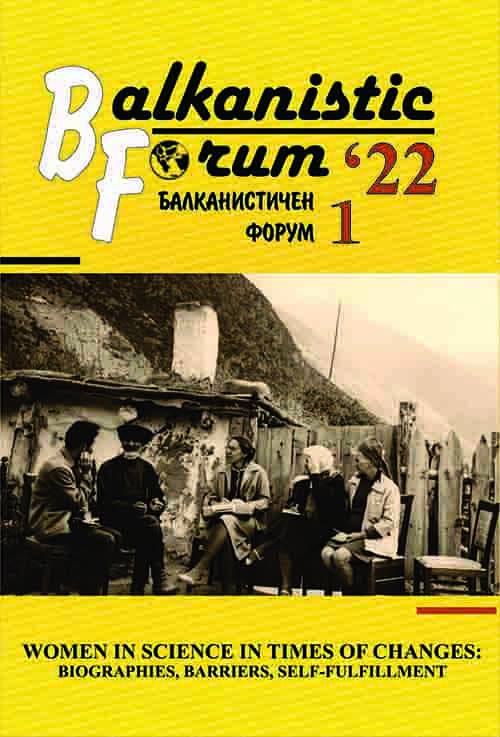The History of the Country through the Course of Life. Professor Valentina Pavlovna Nevskaya (1919-2009)
The History of the Country through the Course of Life. Professor Valentina Pavlovna Nevskaya (1919-2009)
Author(s): Tatˈjana Aleksandrovna Nevskaja, Alla KondrashevaSubject(s): History, Cultural history, Gender history
Published by: ЮГОЗАПАДЕН УНИВЕРСИТЕТ »НЕОФИТ РИЛСКИ«
Keywords: socialist life; socialism; Stalinism; political repressions; Byzantium; Caucasus; high-landers; Karachais; Caucasian studies; social system
Summary/Abstract: The article is dedicated to the prominent Russian scientist, ethnographer and historian Valentina Pavlovna Nevskaya (1919-2009), who received international recognition for the outstanding achievements in the development of the history of antiquity and world Caucasian studies. The biography of the scientist, which reflected many of the most important events of Soviet history (Civil War 1918-1922, economic experiments of the Bolsheviks of the 1920-1930s, the tragedy of the "great terror" policy of 1937-1938, mass repressions, the Great Patriotic War of 1941-1945 years of the Cold War, etc.). The fate of Valentina Pavlovna was quite typical for the representatives of the Soviet intelligentsia: the choice of her major, as well as the choice of work, was determined by the status of "member of the family of the enemy of the people." Since ancient history was the least politicized branch of Soviet historical science, V.P. Nevskaya chose the history of Byzantium for her thesis topic. The book, written based on the aforementioned thesis, was translated into German and Japanese. The scientific studies conducted by V.P. Nevskaya, who left a big mark in the historical science of the North Caucasus (including taking part in a large-scale academic project of the Soviet era - "History of the peoples of the North Caucasus (end of XYIII in - 1917"). Nevskaya V.P. is the editor and author of the main overview works on history of particular areas and peoples of the region. Particular attention is paid to the works of a scientist on the history of Karachay-Cherkessia (from ancient times before the Bolsheviks came to power), in which, on the basis of numerous personally collected materials, including ethnographic and archaeological proof, the history of the region (population, social, family, land and legal relations, way of life, folklore, traditions, etc.) was recollected and restored. Valentina Nevskaya, having carefully studied the very complex social structure of the hereditary relations of the mountain peoples, came to the conclusion that these peoples were at the feudal stage of development, determining that at the turn of the XVIII - XIX centuries. These relations took place and were firmly fixed in the adatas, the customary law of the peoples of the North Caucasus. Particular attention in the writings of V.P. Nevskaya was given to the Karachais, a small Turkic people living high in the mountains of the Western Caucasus. After analyzing a large number of diverse sources, the researcher concluded that feudalism in Karachai developed directly from the general system, and land relations determined the nature of the relationship of Karachais with neighboring peoples, in particular, with Kabardians as a “military-political confederation”. Her experience teaching as a professor at the Stavropol State Pedagogical Institute (now the North Caucasus Federal University), where she headed the department of general history, is described. Valentina Nevskaya taught ancient history, continued her research on the history and ethnography of the North Caucasus and prepared a number of candidates of historical sciences. It is emphasized that the works of V.P. Nevskaya are currently important sources for writing disserta-tions, monographs, and articles on topical issues in the history of the North Caucasus. The texts of her books and articles testify to the highest level of professional skill, versatile erudition, the steady observance of ethical standards, and the awareness of the scientist’s moral responsibility.
Journal: Балканистичен Форум
- Issue Year: 31/2022
- Issue No: 1
- Page Range: 202-219
- Page Count: 18
- Language: English
- Content File-PDF

